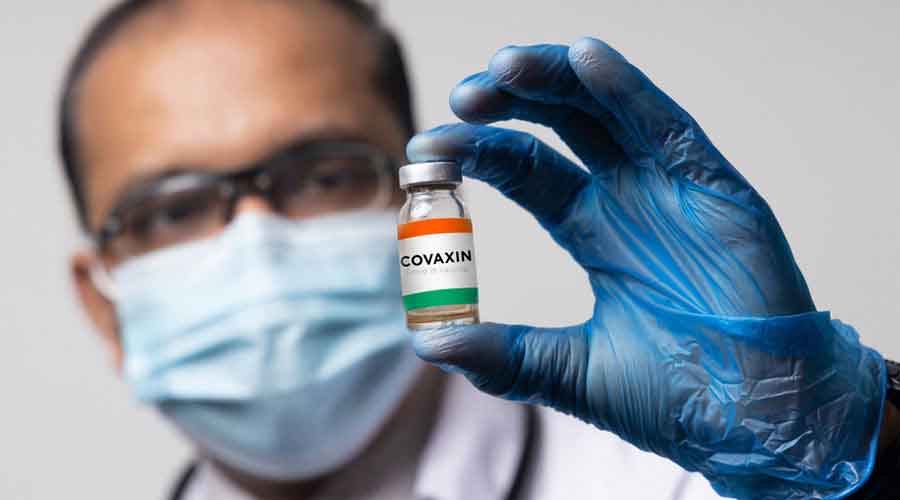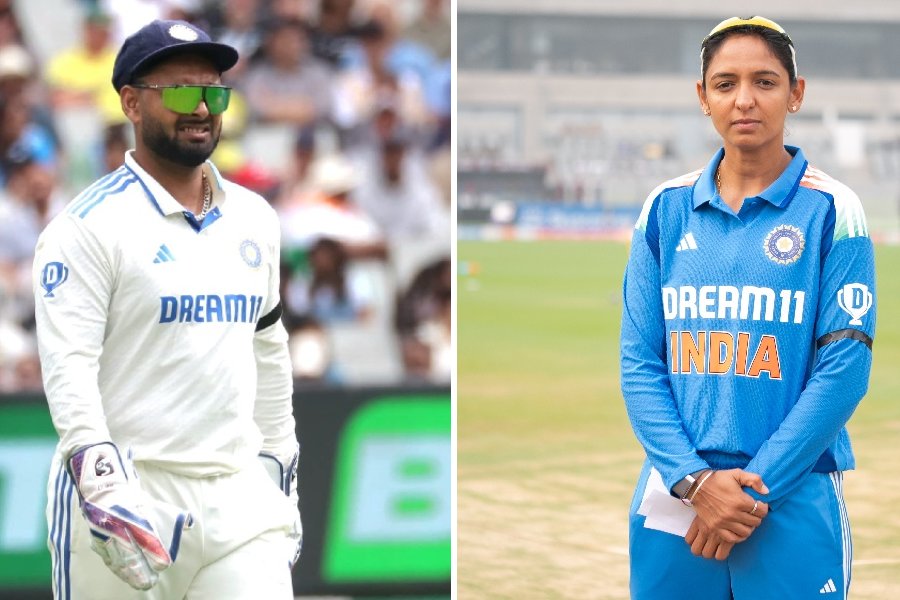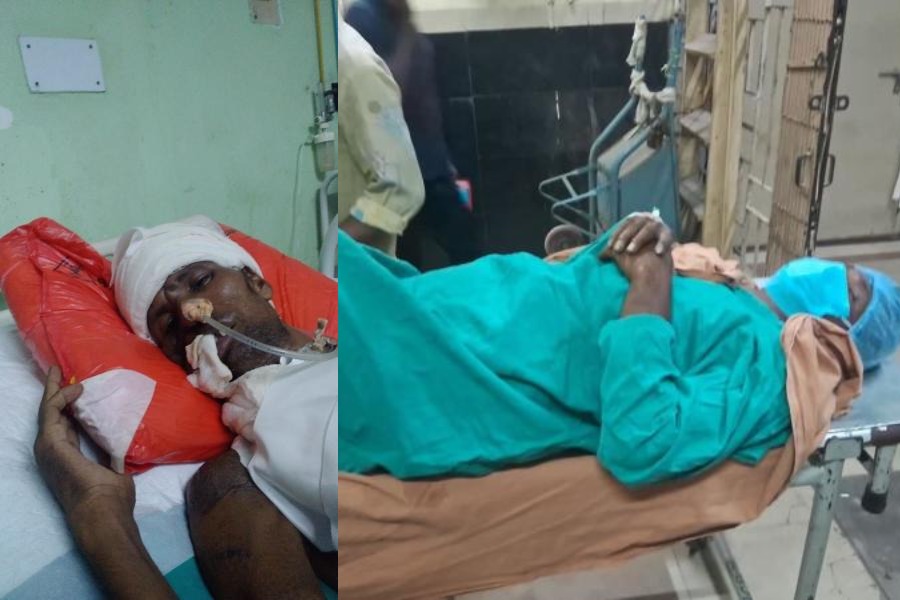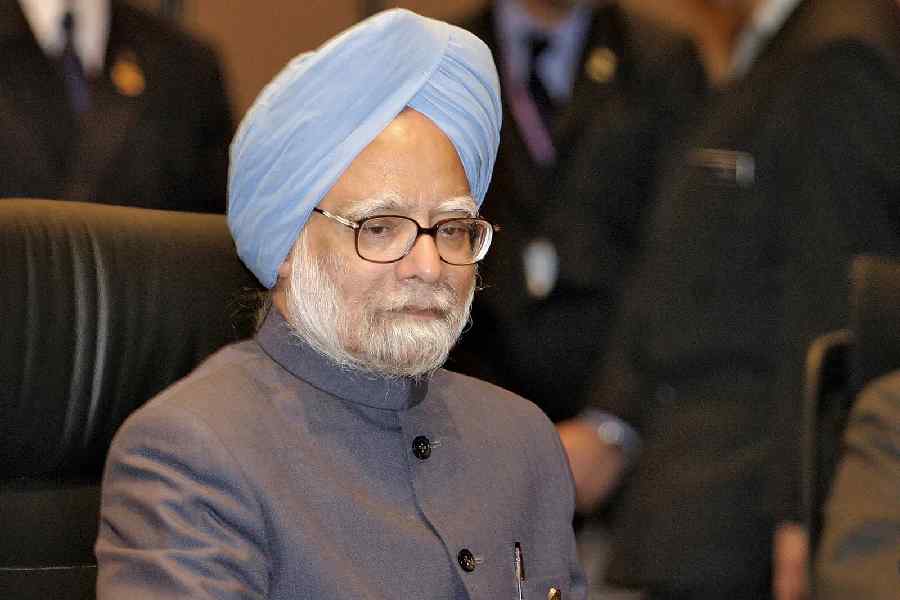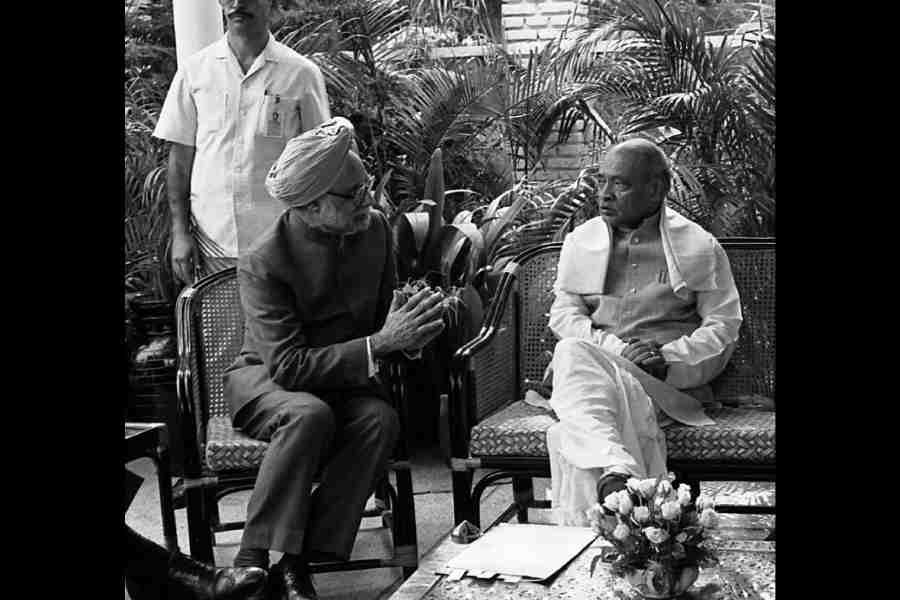Two senior health officials on Tuesday urged healthcare workers to abandon hesitancy and accept the Covid-19 vaccines offered to them amid concerns that many potential beneficiaries have declined the jabs since the vaccination campaign started on January 16.
The campaign, currently covering healthcare workers, has vaccinated over 631,000 people across the country but vaccine uptake has ranged from over 80 per cent in Telangana and 72 per cent in Uttar Pradesh to 34 per cent in Tamil Nadu and 27 per cent in Punjab.
Vinod Paul, a senior paediatrician and the chair of the national expert group on Covid-19 vaccination strategy, said those who were “fortunate” to be listed to receive vaccines in the early days or weeks of the campaign should “not refuse”.
The two vaccines used in the campaign — the AstraZeneca-Oxford vaccine, Covishield, made in India by the Serum Institute of India and the homegrown Covaxin made by Bharat Biotech — are both very good, safe, and capable of generating strong immune responses, he said.
The Union health ministry said India had documented only 18 adverse events following immunisation (AEFIs) per 100,000 people vaccinated and only nine AEFIs have required hospitalisation among the 631,417 vaccinated until 6pm on Tuesday.
“We have an extremely robust system for AEFI reporting and AEFI management,” said Rajesh Bhushan, the health secretary, outlining the mechanisms the campaign has put in place at the district, state and national level to track AEFIs among vaccine recipients.
“When you receive a vaccine which is assigned to you, you protect yourself, and you can perform your functions without fear of contracting the infection. You can protect your family,” Paul said. “And once an individual is protected, the virus cannot cross that individual.”
An individual person who could have been protected but does not take the vaccine remains susceptible to the infection and may continue to spread the virus. “We’re not fulfilling our societal responsibility if a vaccine assigned to you is not being taken,” Paul said.
Balram Bhargava, the director-general of the Indian Council of Medical Research and member of the national task force on Covid-19, also issued a similar appeal. “It is very clear that both these Covid-19 vaccines are very safe. The time to take the vaccine is now.”
The appeals come against the backdrop of concerns among sections of doctors and medical experts that India has approved the homegrown Covaxin with only safety and immunogenicity data, while efficacy data is still awaited. Some doctors have said they’ll take Covaxin only after efficacy is proven.
Paul, however, said it would be “sad” if healthcare workers decline vaccines. “In the next few days to weeks, we hope to cover all our healthcare workers, they’ll be Covid-proof,” he said. “Why doubt, I have taken Covaxin and I have zero side effects. Look at the data — both vaccines are safe, safe, safe.”
But other medical experts underlined that while safety has been established, there is no data yet on the efficacy of Covaxin. “The problem is that with one vaccine, we don’t know for sure yet whether we’ll be protected — this is the worry,” said a senior researcher who requested not to be named.
“Would it not be a disservice to healthcare workers to use something with unproven efficacy when you had the option of only deploying something with proven efficacy?” the researcher said. “They’ll think they’re protected, but they may or may not be — that’s the worry.”
Another senior clinical-researcher in a leading medical institution and college said: “On what basis is the claim being made about protection? And there is no such thing as Covid-proof. Reduced risk, yes.”

